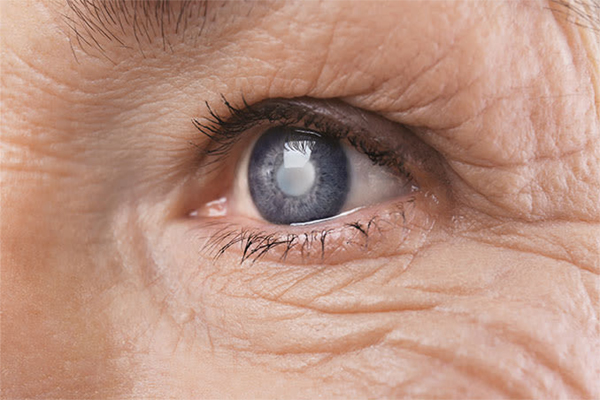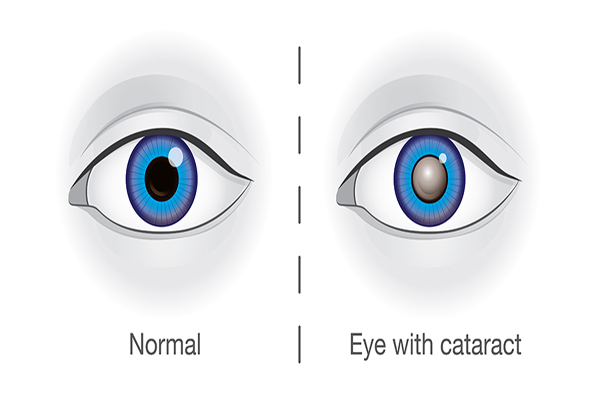Table of Contents
Cataracts are one of the causes of blindness in the elderly. There is no safe way to prevent cataracts, But by changing your lifestyle, you can reduce the risk of getting it. Cataracts occur when protein builds up in the eye’s lens and blurs it, eventually blocking light from entering the eye.
Cataract surgery is a procedure that involves removing an artificial lens and replacing it with a natural lens. A professional ophthalmologist performs cataract surgery as an outpatient procedure. This is one of the most popular and safest ophthalmology procedures. Cataract surgery is a procedure for removing cataracts from the eye. Your doctor may prescribe cataract surgery if cataracts make regular everyday activities difficult. The eye’s lens usually is so clean that cataract illness causes it to cloud, resulting in blinding light and impaired vision.
In the continuation of this article, we will examine the complications of cataract surgery from the Amitis Health Tourism Company.

Complications of cataract surgery
In general, the complications of cataract surgery are unusual, and most of the complications of this surgery are treatable. According to research, the risk of cataract surgery complications has been significantly reduced with the development of surgical tools and techniques.
If cataract surgery complications occur, they are more minor and will be successfully treated with various medical methods. In the continuation of this article, you will get acquainted with the complications of cataract or cataract surgery from Moj Aramesh Amitis Health Tourism Company.
Inflammation
After cataract surgery, there is a slight inflammation and redness of the eyes. Your doctor prescribes medications and drops to reduce eye inflammation.
Retinal detachment
The retina’s function in the eye is to sense light and send messages to the brain. There may be a risk of retinal detachment after cataract surgery, which can be an emergency and cause the patient to lose vision. Most patients with this complication can see good results if they see a doctor at the onset of the first symptoms. However, after retinal detachment and treatment, a small percentage of vision is permanently reduced.
Infection
Eye infection is another complication of cataract surgery and occurs when germs enter a patient’s eye during surgery. Infection is one of the rare complications of cataract surgery, But if an infection develops, your doctor will treat it by inserting antibiotics into your eye. In other cases, the doctor can remove the infection by removing the clear gel in the center of the eye.
With an eye infection, after cataract surgery, the patient may become sensitive to light or experience pain and redness of the eyes or vision problems. If the patient notices such symptoms, he should see his doctor immediately.
The blurring of the capsule behind the eye
The blurring of the capsule behind the eye is one of the most common complications of cataract surgery. Some people call this complication secondary to cataracts, But this is not a secondary cataract complication; Because when the cataract is treated during surgery, it does not recur. However, sometimes the back of the synthetic lens becomes dull over time, causing blurred vision.
This complication may occur months or years after cataract surgery. The blurring of the capsule behind the eye can be treated painlessly with an effective treatment called a laser. This procedure is known as laser capsulotomy and is usually performed in a surgeon’s office.
Synthetic lens (lens) dislocation
Dislocation of the lens of the eye is another complication of cataract surgery, in which case the patient may see the edge of the artificial lens implant or develop diplopia. If the lens dislocation is severe, it can significantly reduce a person’s vision.
When the prosthetic lens becomes dislocated or displaced, the surgeon will probably correct the placement of the lens during a reoperation and replace it. If you treat it quickly after the lens slips, correcting the position of the lens will be very good. In reoperation, the lens is either implanted in place, or another type of lens is placed in the eye.
Bleeding
The risk of bleeding after cataract surgery is rare, but the blood vessels that supply the retina may bleed in some cases. If the bleeding is minor, it does not cause a problem, but it will lead to vision loss if it is too much.
Drooping eyelids (ptosis)
Drooping eyelids are another common complication of cataract surgery that usually resolves independently, but if it lasts more than six months, it needs reoperation and treatment.
Increased ocular blood pressure
Some people experience an increase in pressure in the eye after cataract surgery, which is called ocular hypertension. This complication can damage the patient’s vision. For this reason, your doctor recommends the use of eye drops or pills.
Sensitivity to light
Sensitivity to light is normal after cataract surgery, But this complication should be temporary and should not last more than two days. If the patient’s allergy lasts more than two days, he should consult his doctor.
Remaining lens parts in the eye
When cataract surgery is performed, pieces of the opaque lenses may linger in the patient’s eye. If there is an issue, the fragments might become a problem if they are substantial. Some consequences of cataract surgery appear soon after the procedure is completed; for example, retinal detachment can develop months or years following a successful procedure. The likelihood of vision loss following cataract surgery is highly minimal, yet, it can be devastating when a person loses sight following cataract surgery. Bleeding and infection inside the eye are the most common causes.
After cataract surgery, if the patient has a significant sensitivity to sunlight, photochromic lenses can be used in spectacles. These glasses darken automatically in the presence of UV rays, reducing and soothing the patient’s sensitivity. After cataract surgery, those with underlying visual illnesses such as macular degeneration, diabetic retinopathy, and other eye diseases may lose eyesight. In truth, most individuals who have cataract surgery may regain their vision; however, persons who have other eye illnesses and cataracts are at a higher risk of problems after surgery.
Suppose underlying eye illnesses such as glaucoma and macular degeneration (a common eye condition that causes vision loss in persons over 50) create underlying eye damage. In that case, cataract surgery may not help the patient’s eyesight. As a result, treating other eye disorders before cataract surgery is beneficial.

Final review
Cataracts are one of the most common causes of blindness in persons over 50, and they can be corrected with surgery. A person should consult a doctor if they see cataracts. In this instance, the doctor would typically advise the patient to wait until the cataract has progressed and impacted their lives before undergoing surgery. In cataract surgery, Iran boasts many skilled and accomplished ophthalmologists with a stellar track record. In recent years, qualified Iranian surgeons have successfully conducted thousands of cataract procedures in locations such as Tehran, Mashhad, Isfahan, and others.
The problems of cataract surgery have reduced in recent years. Therefore, according to research undertaken in this sector, we can be confident that cataract surgery will be performed in Iran’s leading medical institutes and hospitals. Hundreds of thousands or maybe millions of cataract patients go to Iran for treatment every year. As a result, our Moj Aramesh Amitis Health Tourism Company team is pleased to welcome cataract surgery patients to Iran. Most of the time, patient’s eyes are not harmed while they wait for cataract surgery.
As a result, the patient has more time to consider therapy alternatives. You do not require cataract surgery if your vision is still acceptable if you have cataracts. Cataract surgical complications are pretty uncommon. This is one of the most popular and successful procedures. According to studies on thousands of eye procedures, almost 99 percent of patients experience no significant consequences following cataract surgery. You, dear ones, can contact the skilled specialists of Amitis Health Tourism Company to conduct cataract surgery in Iran and track your treatment process in Iran with ease.




